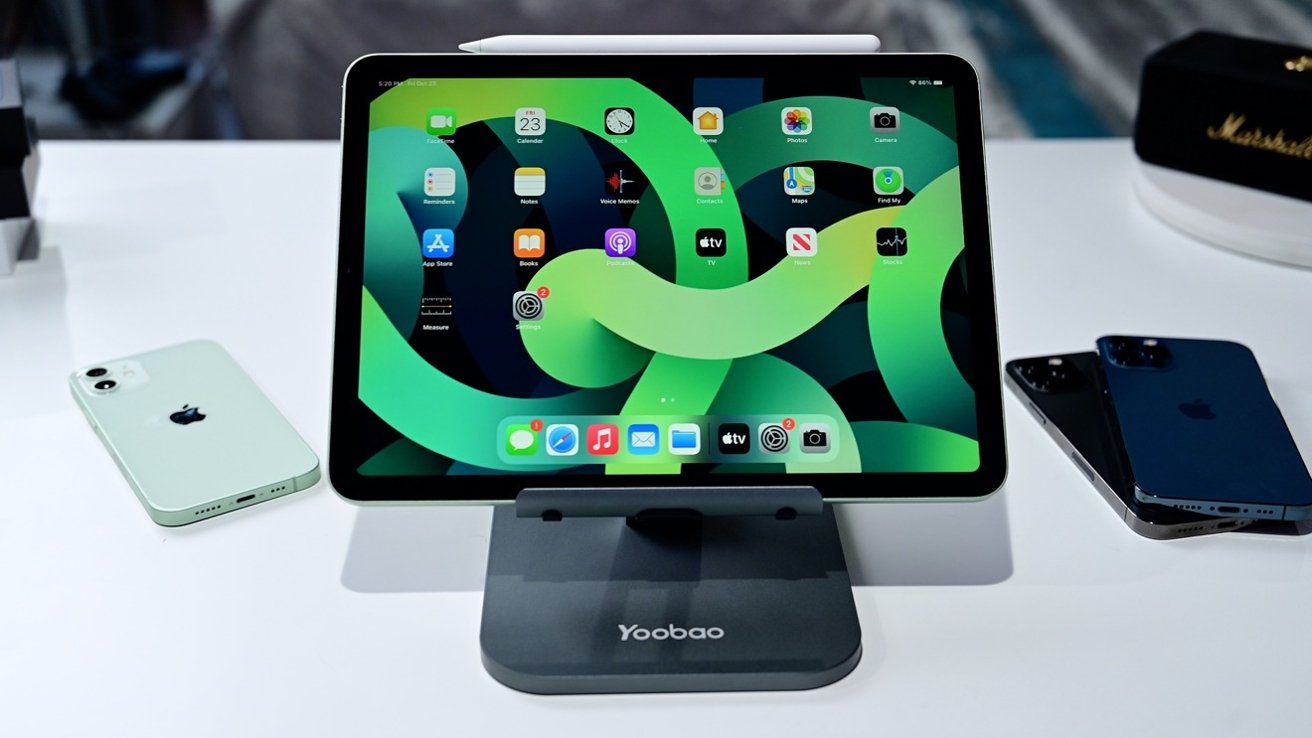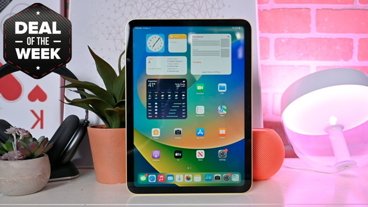Up to 35,000 first-year and transfer students in the California State University school system will receive an iPad Air bundle to use throughout the entirety of their undergraduate program.
The new program, dubbed CSUESS (which stands for California State University Connectivity Contributing to Equity and Student Success,) is designed to create more equitable conditions and opportunities for students at CSU.
The university points out that half of all CSU undergrads receive Pell Grants — grants that are awarded to students who display "exceptional need" — and nearly a full third are the first in their family to pursue a bachelor's degree.
"CSUCCESS will assure that students have immediate access to innovative, new mobile tools they need to support their learning, particularly when faced with the lingering effects of the pandemic," said CSU Chancellor Joseph I. Castro. "The new initiative will establish a foundation for their achievement and has the potential to play a key role in eliminating stubborn equity gaps among our talented and diverse students. In addition to truly addressing equity and access, we see iPad Air as a powerful tool to prepare our students for their future careers."
Apple's Vice President of Education and Enterprise Marketing, Susan Prescott, spoke on the news of the initiative as well.
"At Apple, we believe that education is a powerful force for equity and opportunity, and that technology can empower all students to achieve their goals," she said. "We're thrilled that iPad Air and the incredible education apps in the App Store will be central to the experience at CSU campuses across California, and will play a part in the learning and career development of students from Humboldt to San Marcos."
Students who register for the initiative will receive an iPad Air, Apple Pencil, and a Smart Keyboard Folio. Students must be first-year students or transfer students coming to one of CSU's eight campuses.
In 2020, Apple highlighted how the iPad can help students of all ages overcome educational challenges. The tech giant showcased a school that used the iPad to teach eighth-graders how to tend to the school's community garden.
School staff in West Virginia recently convinced the Berkeley Board of Education to begin the switch from school-supplied Chromebooks to iPads. The board unanimously voted to provide the school system with 180 iPads distributed to teachers as part of a pilot program.
Keep up with everything Apple in the weekly AppleInsider Podcast — and get a fast news update from AppleInsider Daily. Just say, "Hey, Siri," to your HomePod mini and ask for these podcasts, and our latest HomeKit Insider episode too. If you want an ad-free main AppleInsider Podcast experience, you can support the AppleInsider podcast by subscribing for $5 per month through Apple's Podcasts app, or via Patreon if you prefer any other podcast player.
 Amber Neely
Amber Neely







-m.jpg)






 William Gallagher
William Gallagher
 Charles Martin
Charles Martin
 Christine McKee
Christine McKee
 Wesley Hilliard
Wesley Hilliard
 Malcolm Owen
Malcolm Owen
 Andrew Orr
Andrew Orr

 Sponsored Content
Sponsored Content







12 Comments
We have been told by critics and analysts that Apple has lost its mojo in the educational market. Chromebooks are the go-to choice for schools now. So what’s up with this story? There’s another story mentioned here about a school district switching from Chromebooks to iPads.
I remember the good old days when parents would demand their school district buy Windows computers so their kids would learn how to use a REAL computer, one they would use in real life work. When my oldest son entered the University of Illinois in Champaign/Urbana the engineering lab was exclusively Macs running Mathematica. That must have been a shock to those parents and their kids.
If by "equity" they meant a mediocre experience for all, I'd say they nailed it. And device aside, I don't understand how education has sunk so low as to teach things which are tactile, real-world skills, using a digital device. Why not go out into the garden, get your hands dirty, and teach by example? This means the teacher has to actually know something, rather than being a stooge pointing to a device. The idea that they "...teach eighth-graders how to tend to the school's community garden" using an iPad...just sounds sad. Maybe I'm wrong.
Wow, what a sweet deal. I would have loved to have had this type of tool available to me for undergrad electrical engineering. The iPadOS 15 Quick Note feature along with the Pencil and Smart Keyboard should be very popular. Being able to take snapshots of whiteboards/chalkboards and have the lecture notes, reference material, and textbooks available in electronic format rather than trying to write stuff down during lectures would be totally awesome. Having access to all manner of calculators, scientific, business, graphing and conversion tools, drawing tools, Microsoft Excel, Word, Pages, etc., ... definitely a huge improvement over what we had back in the olden days.